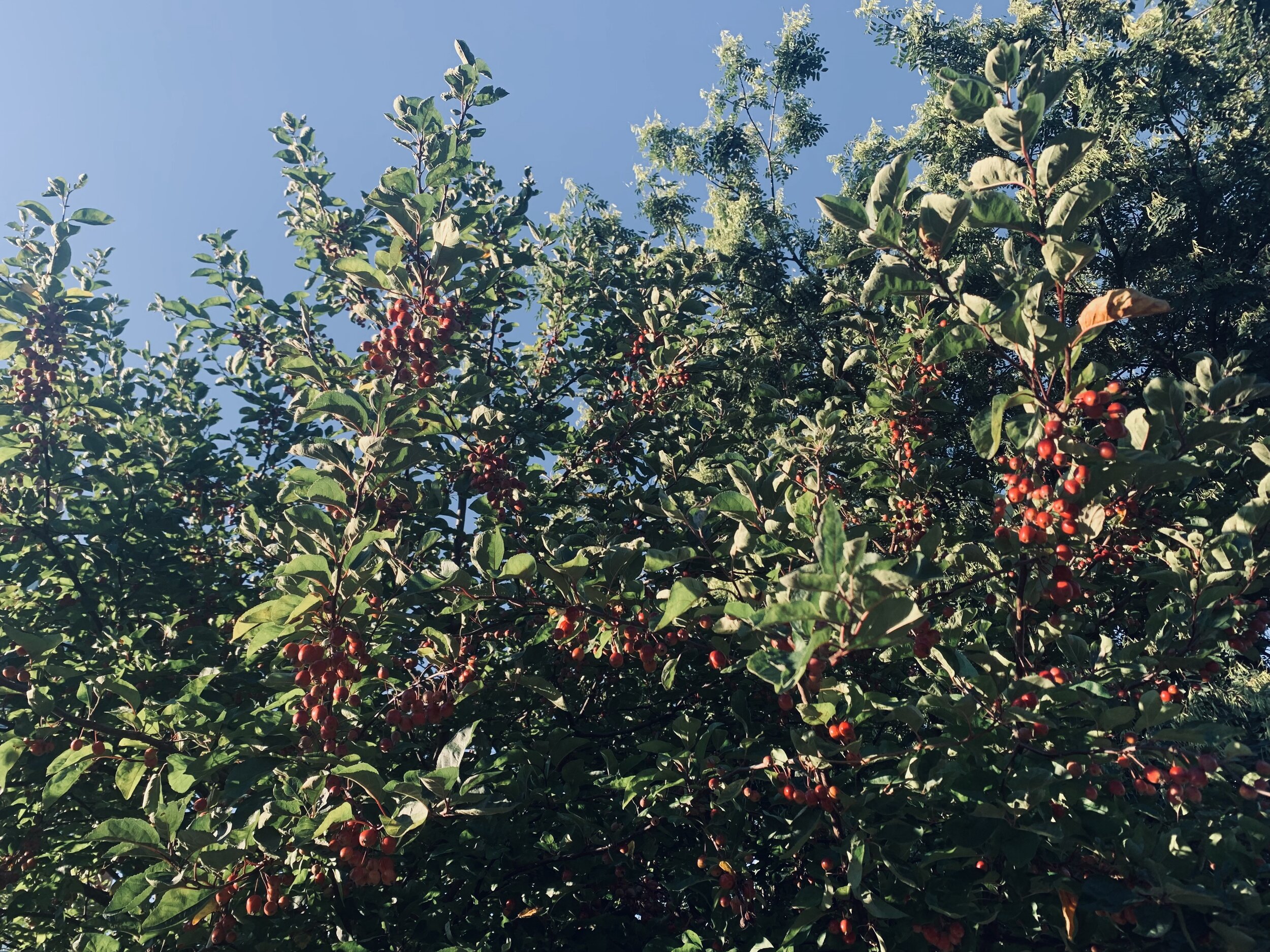Fox Frazier-Foley: The Runaway Known as St. Apollinaria

Jon Phillips
The Runaway Known as St. Apollinaria Lived as a Male Monk Named Dorotheos Who Twice Healed His Own Sister: Once of Demonic Possession and Once of Pregnancy by a Demon
October wick to lit & drip to come apart by fire: blood moon
blood on the moon blood
down the moon My blackest
eye my chanting core: this ascetic room I see the moon
in the Virgin’s month I delivered her from dark grasp, armed
her with camphor lemon pine (& she forgot) snakeroot a thin
column of salt (the sachet only once:) he ribboned her, rent her
fragile roots, forced his soot
thumbprint at her throat
and the moon sees me. The moon sees
she named me a plea the one I want to see
divine touch of death not unlike myth
in which Hades bade Persephone stay & swallow
that third seed so my sister bit & swallowed
her blood her choice her I am through
pulp & rind & ruby bead
I rolled its root in gauze, turned the slender
bundle tender through smoke &whisper calling
forth her pure stain pessary estuary bless the
calling January's Frost & keening not until but through February’s Want, a thinned
bless me
body nursing its void. And daily, the sun
casting its brittle
will she be whole will he return to hurt her still might she
betray my secret
will I will she
cease to bleed will He
bless the One that I want to see
whispers of whatdestruction to come
St. Athanasia of Antioch and Her Husband St. Androcinus Entered Separate, Gender-Appropriate Monasteries When Their Young Children Died of Illness; Twelve Years Later, They Settled into a Single Monastic Cell Without Recognizing Each Other, and For Many Years Shared an Ascetic Life in Silence, Until After Her Death a Posthumous Note Elucidated Her Identity
Tanzanite clusters of cornflower, my secret excess. Plucked on Jerusalem pilgrimage,
pressed to last as long as legend would allow. That tests affection. I was dressed
as man because women’s talk is tailored to protect. Even our most pious efforts are
subject to viscous vicious, as you know. And though I admit I did not know
your face—twelve ritual years of fast, self-abnegating pain on both our parts—I was
proud and humbly grateful to have found you as companion. Determined as a hart,
you admitted no impediment: psyche sculpted out of hope, hewn sense of trust in God,
your human form my sworn protection. We persevered to celebrate even painful truths
together perennial, steady rock upon which I built my sense of wonder an altar
determinedly unaltered undisguised will not be warped starless or removed this
matching of two minds that heats to touch each other’s hands help each other rise
Measured worth will fall away; letters crumple, tongues stumble silent. That I could
gaze on you through silence like a damaged glass is no small miracle. I know the heart
too, is a muscle. Your patience like enduring lungs, or melodic cymbal: I could weep
in the language of angels sonic swim of seraphim scooped & coiled to mortal glottal
and you did not put me or my childish things away. I confess I cried because I am afraid
to think someday we will know each other in lucence more sincere than this as we are
known by God the Father. How much crushing yearning ardor closeness
can we bear? What prophecies will vaporize in end effulgent splendor? What will
we come to call the thing we now call perfect love?
Cleaving core: I feel certain that our pacing falls not far apart. Until our unfathomed
limitless blueblack & all its violent sparks have called you finally to my grasp, I press you
receive and keep my bodied luxury: rare as antlered fauna in near mist, proud breast paused
mid-dart: cached & parched cornflower petals fraying keen against the skin and bone
that guard the heart.
Fox Frazier-Foley is author of two prize-winning books of poetry, Exodus in X Minor (Sundress Publications, 2014) and The Hydromantic Histories (Bright Hill Press, 2015). Her newest collection, Like Ash in the Air After Something Has Burned, is forthcoming from Hyacinth Girl Press in early 2017. Fox has edited two anthologies, Political Punch: Contemporary Poems on the Politics of Identity (Sundress Publications, 2016), and Among Margins: Critical and Lyrical Writing on Aesthetics (Ricochet Editions, 2016). She created and manages the micro-press Agape Editions, which is dedicated to publishing literary works that engage with concepts of the mystical, ecstatic, interfaith/intercultural, and the Numinous. Fox was graduated Phi Beta Kappa from Binghamton University, was honored with merit-based fellowships at Columbia University, where she earned an MFA, and was a Provost's Fellow at the University of Southern California, where she earned a PhD in Literature & Creative Writing.







